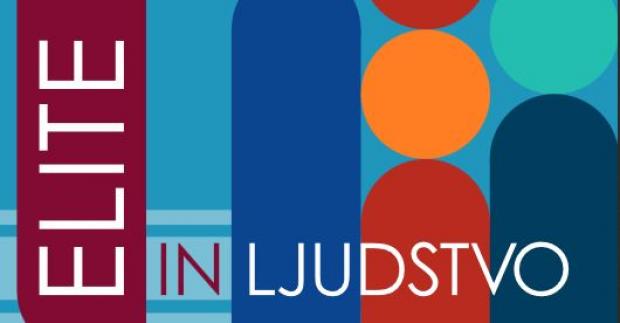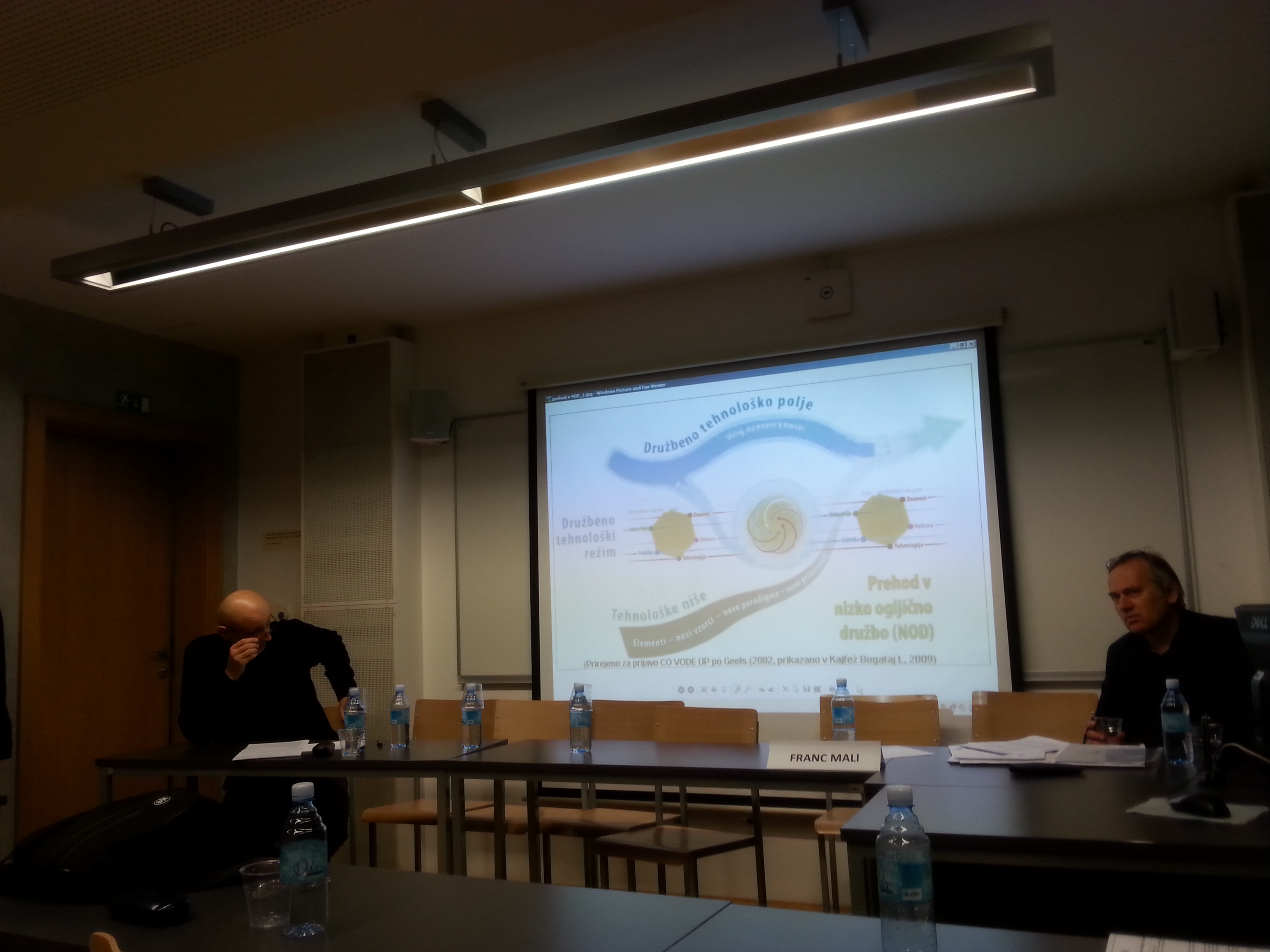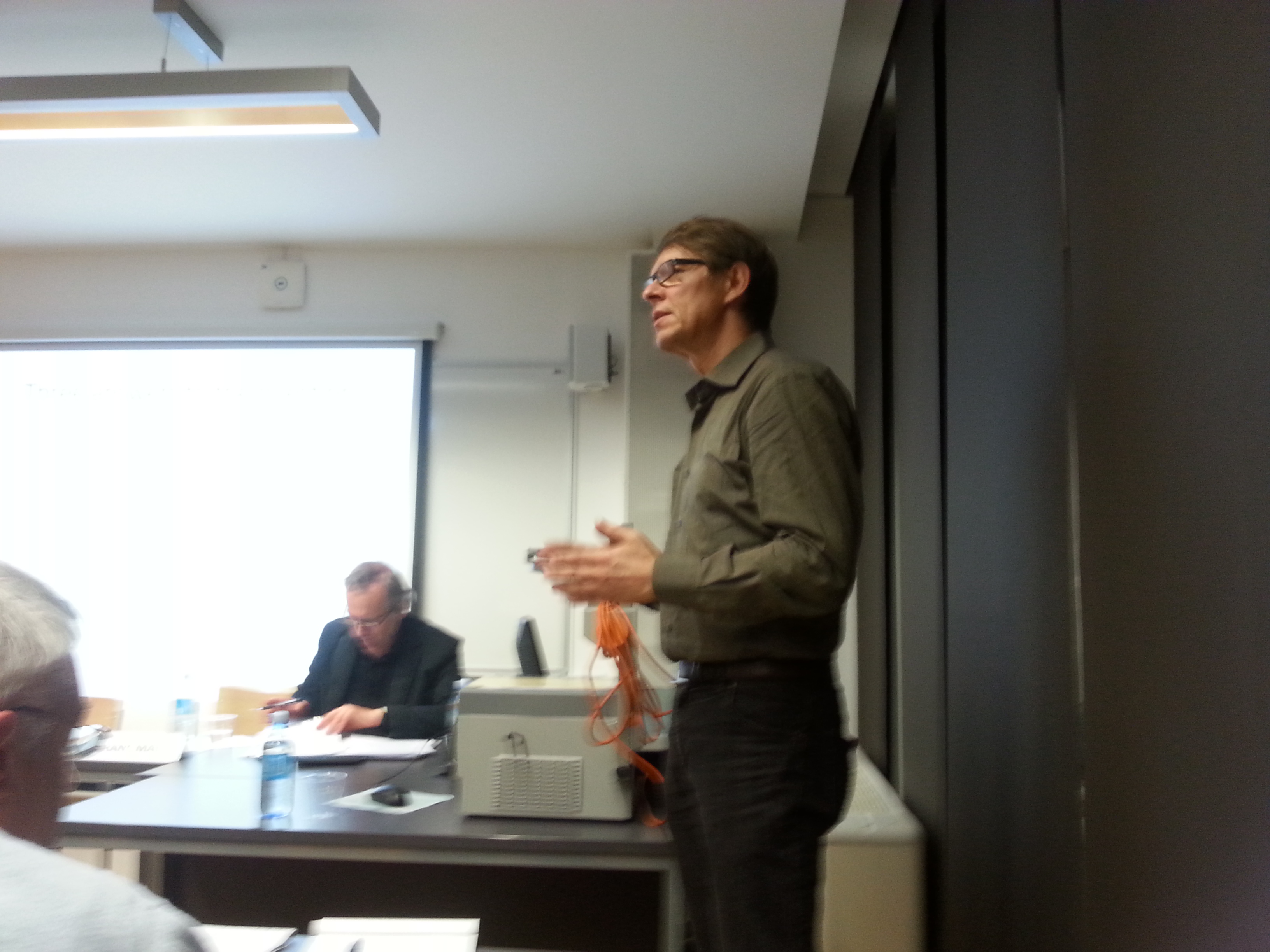
Report on the Joint Slovenian and Italian STS Experts Workshop in November, 8 - 9, 2013 in Koper (Slovenia)
Submitted by editorial_team on
During the 8th and 9th of November, a workshop took place in Koper, Slovenia, which was attended by Science, Technology and Society (STS) experts from Slovenia and Italy (University of Ljubljana, University of Koper, University of Trieste, University of Padua), (some of) whom are also participating in the SYNENERGENE project. The workshop was titled "The Challenges of New and Emerging Sciences and Technologies for the Social Sciences and Humanities", and was organized by the Section for the Sociology of Science under the auspices of the Slovenian Sociological Association (for the agenda and abstracts of the conference, see: http://www.sociolosko-drustvo.si/wp-content/uploads/2013/10/SSD-novice-13-5-November-2013.pdf.)
The Slovenian Sociological Association organizes annual conferences, and the Section for the Sociology of Science is active under its framework. At the annual gathering of Slovenian sociologists in November 2013, the debate in the Section for the Sociology of Science concentrated mainly on the benefits and risk of the new and emerging technologies, with a special emphasis on theoretical reflexivity and empirically-based views of how to improve the participation of various stakeholders in the social regulation of converging technologies. The presentations of the participating Slovenian and Italian STS researchers have also addressed some of the societal, policy and ethical aspects of the recent developments in synthetic biology. As synthetic biology occupies one of the most
relevant positions among the recent trends in technoscientific convergence, it is not possible to avoid at least some mention of its social and ethical implications, despite the main discussion revolving more around the general societal issues of the new and emerging technologies.The following STS researchers presented papers dealing with various societal aspects of the new and emerging technologies at the workshop: Simone Arnaldi (University of Padua), Luca Bianchi (University of Trieste), Franc Mali (University of Ljubljana), Toni Pustovrh (University of Ljubljana), Igor Pribac (University of Ljubljana), Olga Markic (University of Ljubljana), Andrej Luksic (University of Ljubljana), Blanka Groboljsek (University of Ljubljana). The presentations and the broader discussion exposed the following acute challenges in the scope of the social regulation of the new and emerging technologies: the need to find more balanced policy models for the regulation of new and emerging technologies in small states such as Slovenia, where all the voices of various social stakeholders could be heard, the need to alter the academic culture of (Slovenian and Italian) academics in a way that would lead to more cross-disciplinary discussions on the various societal aspects of new and emerging technologies, and finally to recommendations on how to transform the notion of (social) responsibility concerning the progress of the new and emerging technologies.
The workshop thus presented a general critical overview of the key social, ethical and policy challenges posed by the new and emerging technologies (with an emphasis on synthetic biology) to the broader audience of Slovenian sociologists, who are professionally active in different institutional areas (research and education sector, government sector, business-enterprise sector, NGOs, etc.), and will hopefully contribute to a wider dissemination and discussion of such pressing and relevant issues.
Written by Franc Mali, Toni Pustovrh, and Simone Arnaldi


